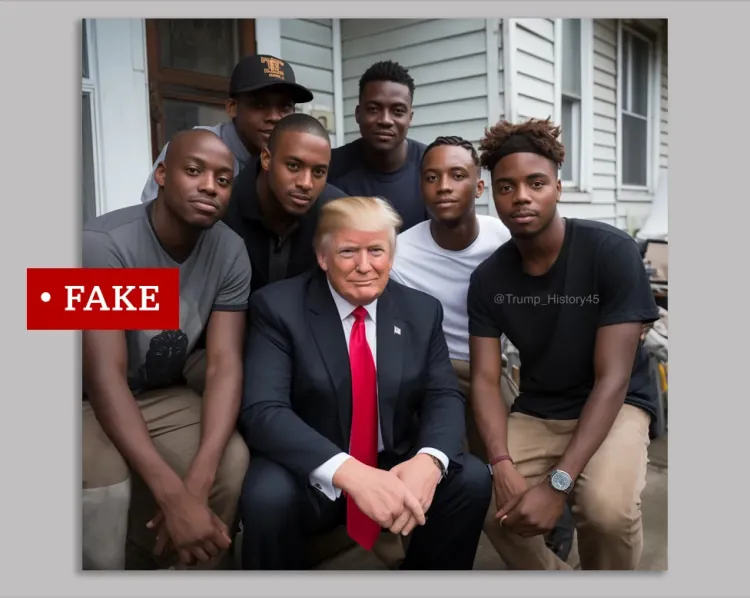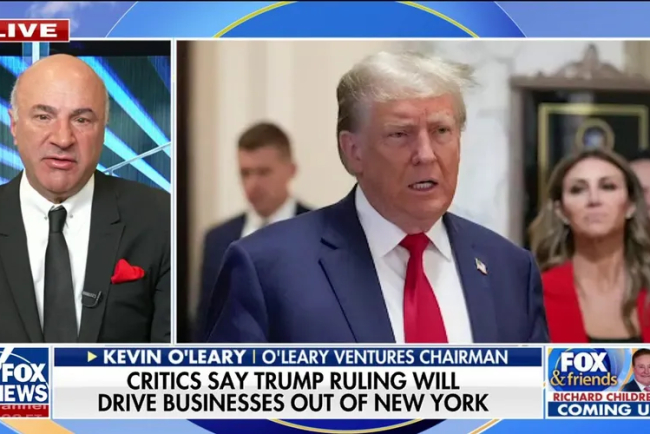TRUMP AI-Generated Deepfakes on Black Voter
Explore the emergence of AI-generated deepfakes portraying black supporters of Donald Trump, a tactic potentially influencing voter perceptions ahead of the US presidential election

- Introduction
- Discovery of Deepfakes
- Strategic Narratives and Voter Targeting
- The Creators Behind the Images
- Impact and Reaction
- Conclusion
Introduction
In the digital age, the power of images to sway public opinion is undeniable. Recently, a concerning trend has emerged where AI-generated fake images are being used to manipulate perceptions, particularly among African American voters. Supporters of former President Donald Trump have created and circulated these deepfakes in an attempt to showcase unwarranted support from the black community. This tactic, uncovered by BBC Panorama, highlights the sophisticated levels of disinformation infiltrating the political landscape.
Discovery of Deepfakes
BBC's investigation revealed numerous AI-generated images falsely portraying black individuals as fervent supporters of Donald Trump. These efforts aim to counteract the significant support Joe Biden received from black voters in the 2020 election. Despite the lack of direct ties to Trump's campaign, these manipulated images serve a clear strategic purpose: to amplify the illusion of widespread support among African Americans for Trump.
Strategic Narratives and Voter Targeting
Groups such as Black Voters Matter have raised concerns over these deceitful tactics. Cliff Albright, co-founder of the organization, emphasized the strategic narrative being pushed to win over black voters, particularly young black men. The timing is critical as the presidential election looms, with both sides vying for every possible vote. The emergence of these deepfakes signals a resurgence of disinformation campaigns aimed at the black community, mirroring tactics seen in the 2020 elections.
The Creators Behind the Images
Investigations traced some of these images back to American voters, including Mark Kaye, a conservative radio show host in Florida. Kaye, admitting to the fabrication, argues that storytelling, rather than factual representation, is his primary aim. Similarly, a Trump supporter known as Shaggy created widely viewed deepfakes, underlining the grassroots level at which these disinformation campaigns operate. Their shared rationale highlights a troubling indifference to the ethical implications of their actions.
Impact and Reaction
The impact of these AI-generated images on voter perceptions cannot be understated. While some social media users recognize the fakes, others fall prey to the misleading narratives they propagate. This phenomenon underscores the growing challenge of distinguishing truth from fabrication in the digital realm. Experts and activists alike are sounding the alarm on the potential for such tactics to skew electoral outcomes, particularly in battleground states where every vote counts.
Conclusion
The use of AI-generated deepfakes to target black voters is a stark reminder of the ongoing battle against disinformation in politics. As technology advances, the line between reality and manipulation becomes increasingly blurred, posing significant threats to the integrity of democratic processes. It is imperative for voters to remain vigilant, questioning the authenticity of the information they encounter. In the meantime, efforts must be intensified to counteract these deceptive strategies and safeguard the sanctity of the electoral system.
Explore more on voter influence tactics and the upcoming presidential election at Kiksee Magazine, your go-to source for insightful political analysis and updates.
What's Your Reaction?






















